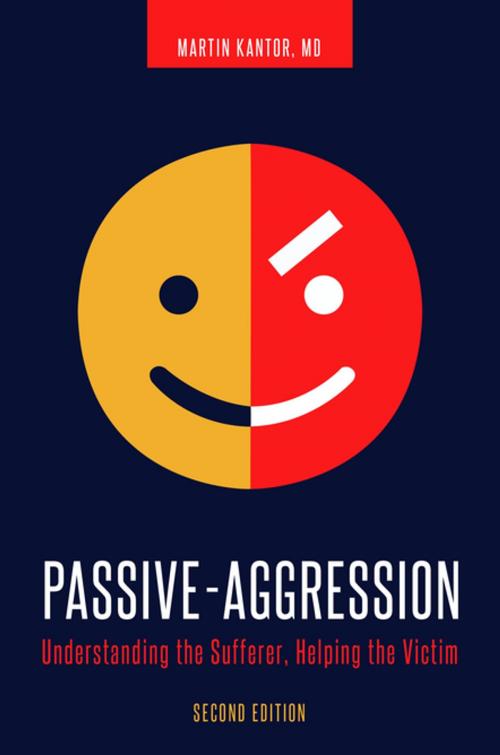Passive-Aggression: Understanding the Sufferer, Helping the Victim, 2nd Edition
Nonfiction, Health & Well Being, Psychology, Pathological Psychology, Interpersonal Relations| Author: | Martin Kantor MD | ISBN: | 9781440837913 |
| Publisher: | ABC-CLIO | Publication: | October 3, 2017 |
| Imprint: | Praeger | Language: | English |
| Author: | Martin Kantor MD |
| ISBN: | 9781440837913 |
| Publisher: | ABC-CLIO |
| Publication: | October 3, 2017 |
| Imprint: | Praeger |
| Language: | English |
Passive Aggressive Personality Disorder (PAPD) is now recognized as a distinct personality disorder. Those who suffer from PAPD are sorely in need not only of diagnostic recognition, but also of specific therapeutic intervention. This new book from Martin Kantor speaks to therapists; guides those who interact with passive-aggressive individuals to advance their own effective coping methods based on science, understanding, and compassion; and directly addresses passive-aggressive individuals themselves.
• Presents powerful, eye-opening, and practical information for therapists, passive-aggressive individuals themselves, friends and family of passive-aggressive individuals, and on-the-job colleagues of those who treat others in a passive-aggressive manner
• Documents how the answers to three basic questions about passive-aggression are the keys to proper diagnosis, understanding causality, and providing improved therapeutic responses
• Covers a variety of treatment options and strategies—including cognitive, interpersonal, and psychoanalytic approaches as well as common transference and countertransference issues—that will aid victims of passive-aggressiveness and help passive-aggressive individuals themselves to do better
• Includes two chapters that specifically provide self-help therapy for sufferers and their victims
Passive Aggressive Personality Disorder (PAPD) is now recognized as a distinct personality disorder. Those who suffer from PAPD are sorely in need not only of diagnostic recognition, but also of specific therapeutic intervention. This new book from Martin Kantor speaks to therapists; guides those who interact with passive-aggressive individuals to advance their own effective coping methods based on science, understanding, and compassion; and directly addresses passive-aggressive individuals themselves.
• Presents powerful, eye-opening, and practical information for therapists, passive-aggressive individuals themselves, friends and family of passive-aggressive individuals, and on-the-job colleagues of those who treat others in a passive-aggressive manner
• Documents how the answers to three basic questions about passive-aggression are the keys to proper diagnosis, understanding causality, and providing improved therapeutic responses
• Covers a variety of treatment options and strategies—including cognitive, interpersonal, and psychoanalytic approaches as well as common transference and countertransference issues—that will aid victims of passive-aggressiveness and help passive-aggressive individuals themselves to do better
• Includes two chapters that specifically provide self-help therapy for sufferers and their victims


![Cover of the book Guns and Contemporary Society: The Past, Present, and Future of Firearms and Firearm Policy [3 volumes] by Martin Kantor MD](https://www.kuoky.com/images/2015/december/300x300/9781440832185-IKPU_300x.jpg)









![Cover of the book Sacred Texts Interpreted: Religious Documents Explained [2 volumes] by Martin Kantor MD](https://www.kuoky.com/images/2017/october/300x300/9781440841880-0RqY_300x.jpg)


